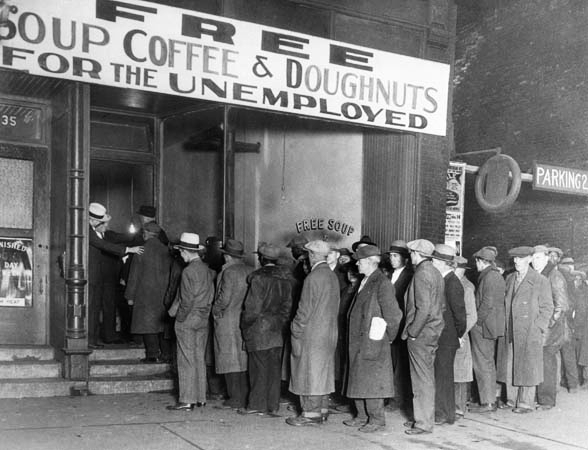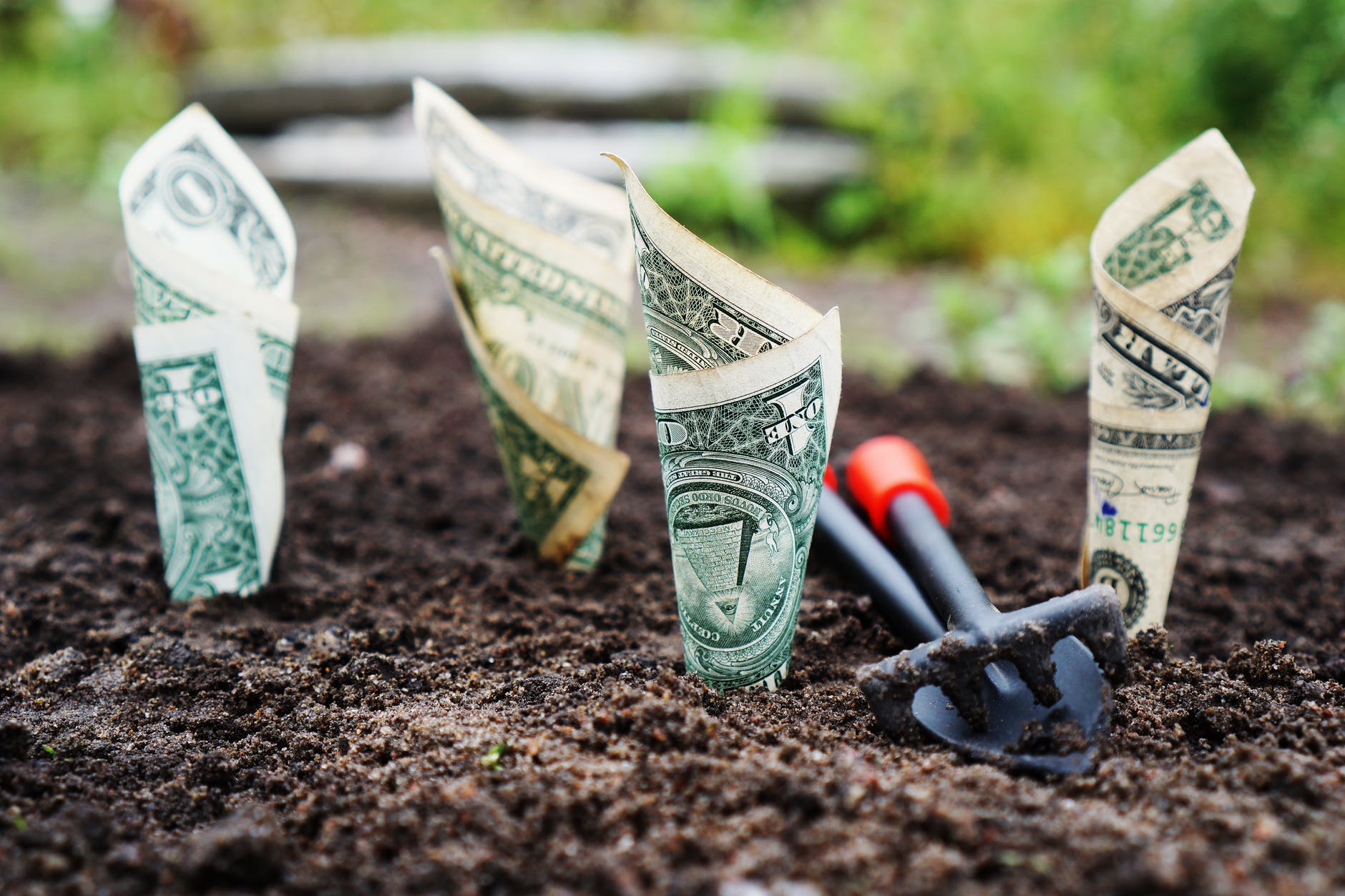The economy after COVID19
All this shall pass. Eventually this virus will become either part of our subconcious lives or a cure or vaccine will be unleashed onto the world. The 12 months or so of time will pass quickly before we are out of the woods, but what will day to day life really look like in Q3,Q4 of 2020 and beyond?
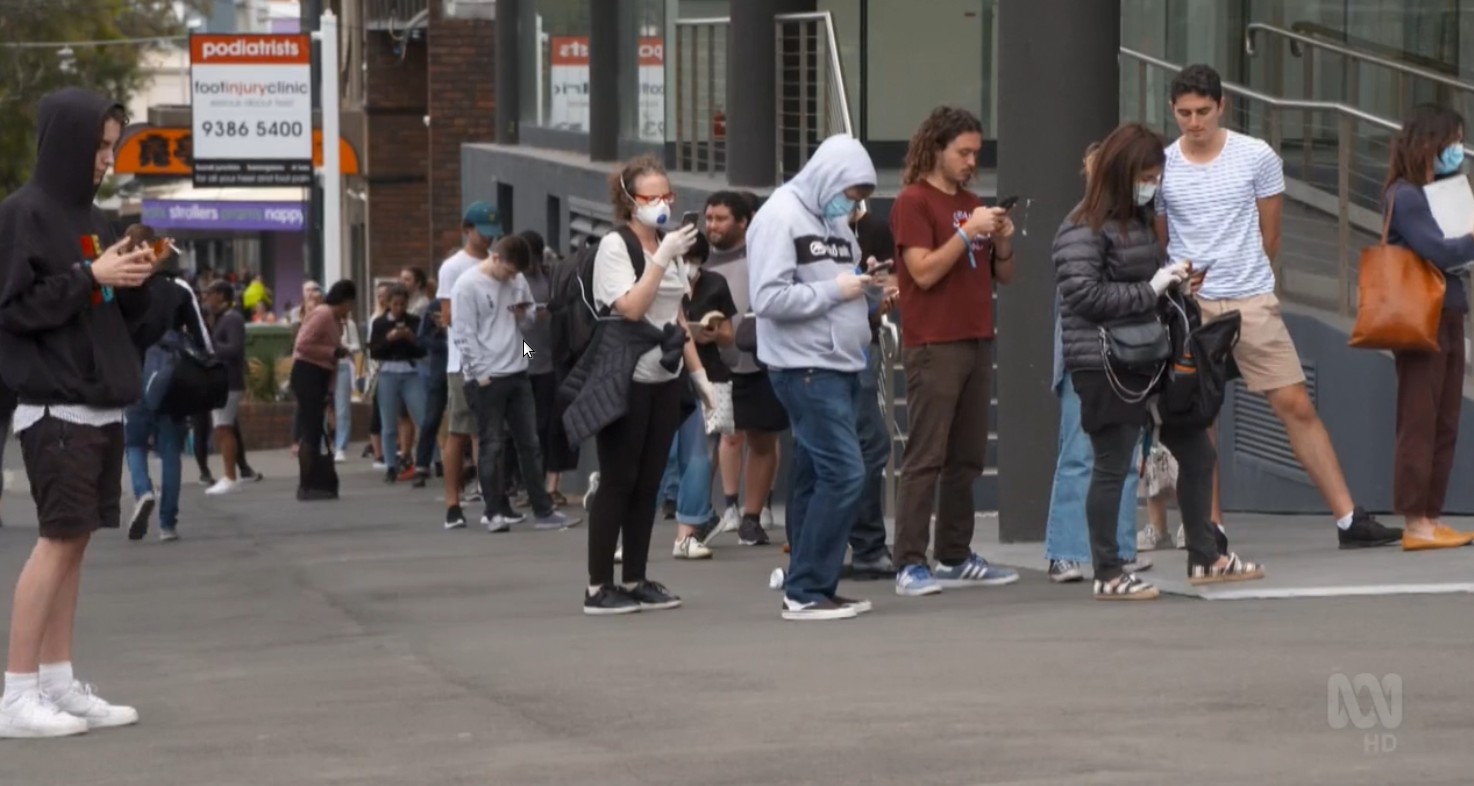
Hundreds line up for welfare payments in Melbourne, Australia. Over 1 million claims in a 72 hour period due to layoffs.
No one has a crystal ball here. But those that are freaked out and living in a state of shutdown emotionally as well as possibly career & work, may not be looking much further ahead than the current week let alone the month & year. The contrarians and those best prepared for crisis certainly are looking ahead and since we all have a lot of time on our hands right now, I wanted to start a conversation as to what the world may look like for the 2nd half of 2020 and well beyond.
In order to even speculate as to what the world may look like, one has to have the courage to detach from the immediate panic, rise above it all and see what is going on. There are many predictable and high likelihood factors playing out right now:
Health & Medical
I’m not a doctor, so I don’t know. But I have to speculate with my money in places that “feel” right, and that has to be linked to medical health right now. In the northern hemisphere, I suspect we’ll see a decline of COVID19 due simply to hotter weather. We are entering a summer season (as I write this, we are about to experience the first 100 degree temperature of 2020 here in Phoenix) and that means that months ahead of us, North America & Europe will be in summer. If this virus follows similar patterns to colds and influenza, it would be reasonable to assume it to go dormant or at least spread will be minimal. That won’t be the case in October, after temperatures start to go down, unless there is some sort of vaccine or cure out by then (highly unlikely), but I can only hope that the summer months ahead of us will help reduce burden on hospitals and health care.
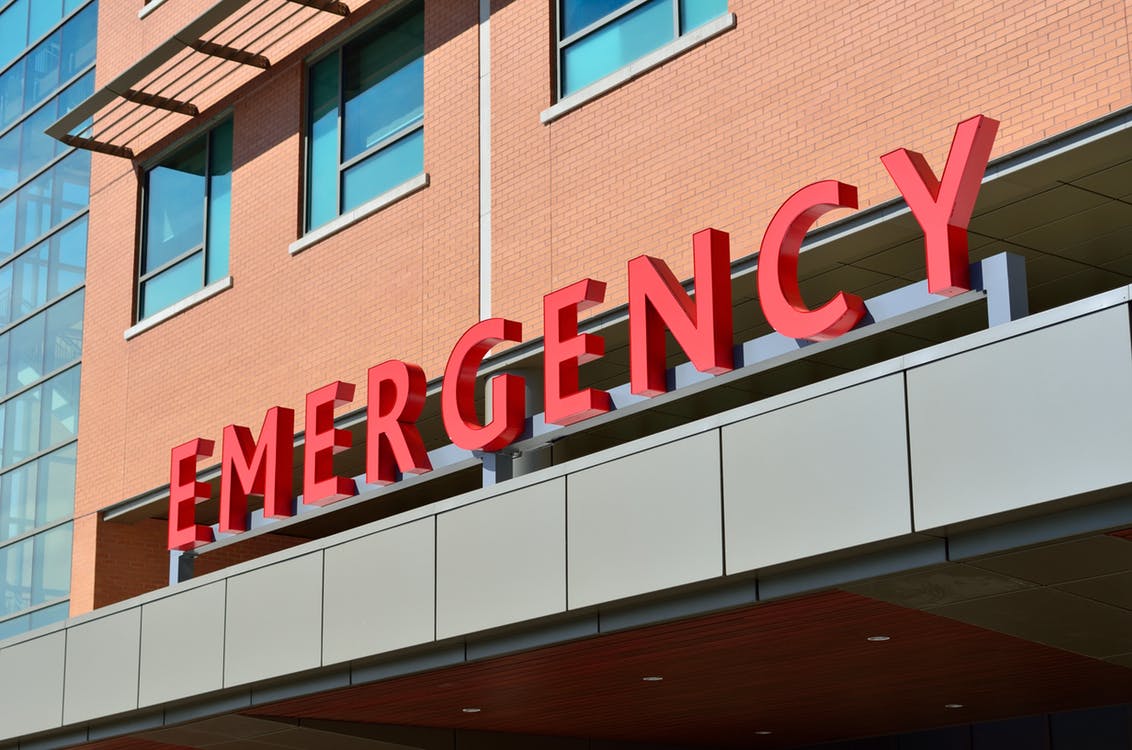
That said, half of the planet is about to go INTO its winter months. That means places such as South Africa, Australia, New Zealand, Argentina, Chile, etc. will have the spotlight turned onto them and we will see if they start to feel the squeeze of this virus as it activates in a more aggressive form in those regions, supported by colder and wetter seasons.
Re-opening the economy
The world is in a state of shock from what we are currently seeing and what recent history we have seen. Polls show that people are not interested in going to large events even if they were allowed to. No one wants to contract this thing, so although the media loves to focus on the protests to re-open businesses and the economy, I don’t think anyone is really thinking this out.
Let’s say you re-open an economy. So who’s going to feel comfortable engaging with it? You will have barbers & salons open, but no one is feeling safe to go there. Gyms will open, but will customers want to go? Will they wear a face mask on the treadmills at the gym? Will they wipe down before and after they use equipment? Will employers feel safe letting their employees come back to work? I mean what happens if one gets sick? Can they sue the employer because they didn’t provide a safe working environment? Would you feel comfortable eating the meal served to you in the restaurant if a customer two tables over, sneezes?
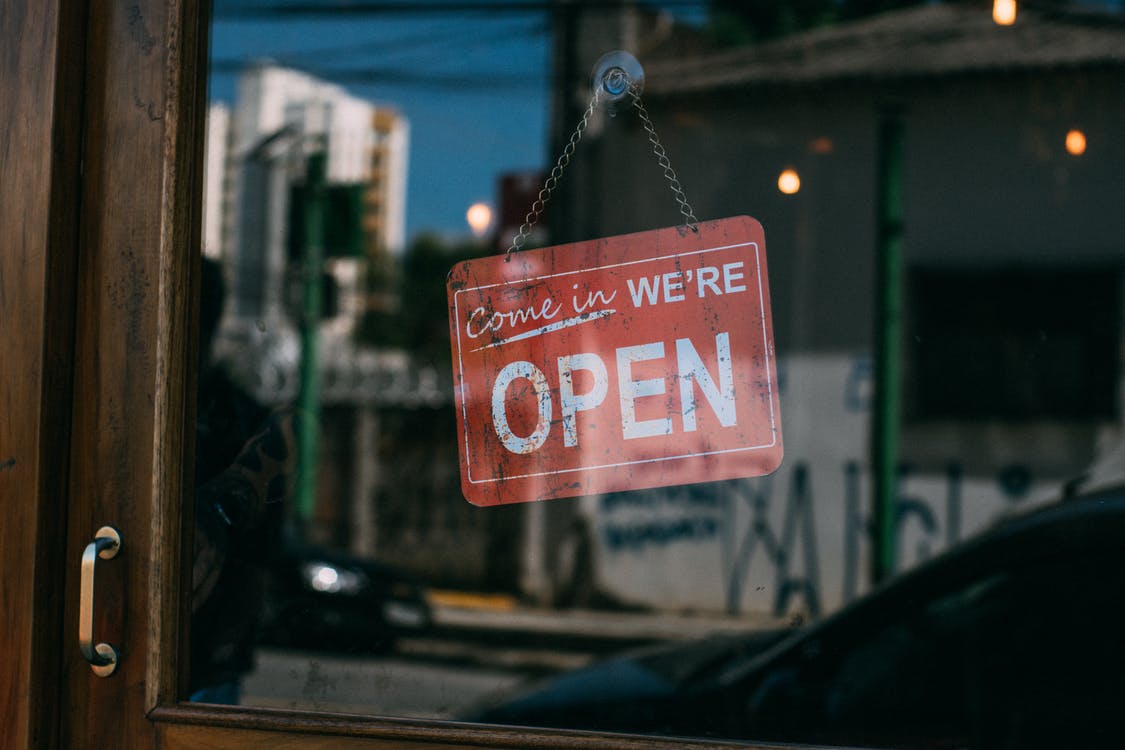
Would you buy an airline ticket and board a plane for hours, locked in a silver metal tube until you reach the destination? How will you feel if someone starts coughing on the flight?
The psychology of humans will ensure that their re-engagement with the economy will be so slow and reluctant that you can have all the options to have an open economy, but I doubt very much if anyone wants to patronize that economy. Maybe 25% of people might, so now your local corner store has to find a way to survive with 75% less business.
Good news for online businesses though. We’ve come to a point where business is now about a web browser and not a human being. Since our entire model of business in the past has been the “ceremony” of doing business (wear a nice suit & tie, shake hands, hand someone your business card, participate in the sales process, sign a contract, etc.), the friction that is now bestowed upon business will slow it down to a crawl.
Jobs
If you have a 75% drop in business, can you keep the doors open? Most cannot. Businesses that are not highly leveraged and have reserves may be able to, but at some point (probably after 3 months or so), they will realize they can’t keep this going and will shutdown entirely. Fire sale on the assets of the business, lay off employees, etc.
The general sense is that one job lost affects about six other jobs. All peripheral businesses that relied on that worker having liquidity will ripple out and eventually reflect on those other enterprises, eventually forcing them into the same situation. In this manner the loss of jobs is not so much a domino effect, but more of a nuclear radiation blast which compounds the impact quickly. And that is exactly what those in government power are attempting to avert. However it is my opinion that any form of artificial stimulus or the heavy hand of government entering into capitalism will do more harm that good, and won’t have any likely major protection to workers.
Jobs will be lost. That’s a guarantee. And if you consider the Brookings Institute’s published paper from Steven Davis and Till Von Wachter of University of Chicago & Columbia Universities, if unemployment rate exceeds 8 percent, the average American worker will see about a 2.8 years of loss of income. Imagine if we are going to see 10-20% unemployment rate? This could realistically mean 5-10 years of earnings loss, and that’s going to decimate the GDP of the western world.

So in a world with little liquidity, where do you get it to keep essential workers employed? Debt. Borrowings will skyrocket, and that will mean that some banks will collapse under the weight of their own balance sheets. With little revenue coming in the form of arbitrate on interest rates, since interest rates are so low, yet the banks still expected to shoulder the risk and burden of heavy borrowings from people with no income, they will be forced to close the spigot of money, thereby reducing anyone’s option of having money down to nothing.
We have seen this in recent history. When 2008 GFC collapse occurred, banks stopped lending. It took about 3-4 years before they felt safe to return to lending in any meaningful manner. There was a time when only those with two years of W2 employment history and a FICO score of 720 was required even to speak with a loan officer. I sense those days are coming again.
Consumption
When money is tight, you cut back on non-essential spending. This is when the contrarians return to the Maslow’s hierachy of needs and those of us who have ventures addressing the lowest levels of the hierachy have the highest chance of survival. Food, shelter, clothing, water, energy, communications, etc. These are the industries that will survive and possibly even thrive in the new economy.
But if you are relying on selling luxury items, this may not be the time for you. In fact it might not be your time for 10 years. My wife designs beautiful custom costumes for kids who do dance as a past-time. Her costumes have won thousands of awards all over the world. She is REALLY good at what she does.
Her business, however, relies solely on an industry that has shutdown. No parent is going to put their kids into a dance school. If you have ever been to a dance school, the smell of sweat is rife and you know these are not biologically safe places. One kid gets a cold, the whole school gets it. Contagion breeds in those environments, and consequently all the national competitions shut down. With that, no one needs a new costume for an upcoming performance. And as these kids are growing, if you ordered and bought one now, it probably won’t fit next year if there is a chance the kid can return to their ballet classes. So her business is effectively shut down. All orders cancelled, and she’s left with a ton of material for those orders.
The same is going to be true of the luxury car market. High end housing will likely fall off. Regular housing probably will be ok over time, and I suspect the rental market will see a comeback, but rents are tied to employment. It is one thing to buy a great new rental property, but you are relying on a tenant who has a job in there paying the rent.
Experience based spending will take hit. The lock down has hurt the traveling industry, so although there might be some great deals to take a cruise, would anyone actually feel safe doing that? Or flying to another country away from their “safe haven” of their home? I suspect most families will restrict their vacations to closer regions, probably preferring to drive than fly.
Business
Business consumption will reflect demand. The businesses in demand will be online, but the problem there is that humans are competing with bots and automation for work. I remember taking a good friend of mine for a tour into our data center in Phoenix. He was about 80 years old, so I thought it might be a strange experience for him to see how the Internet actually looks inside and behind the curtain. We sat down in the break room after walking around the halls of servers, etc. and he said something really interesting to me. He said, “The most surprising thing I saw here was the lack of humans.”. Yep, he’s right. We have thousands and thousands of servers in racks, cabinets, etc. and if we walk the football field size array of servers, I think we encoutered three (3) people in the whole place. That’s because computers don’t need humans.
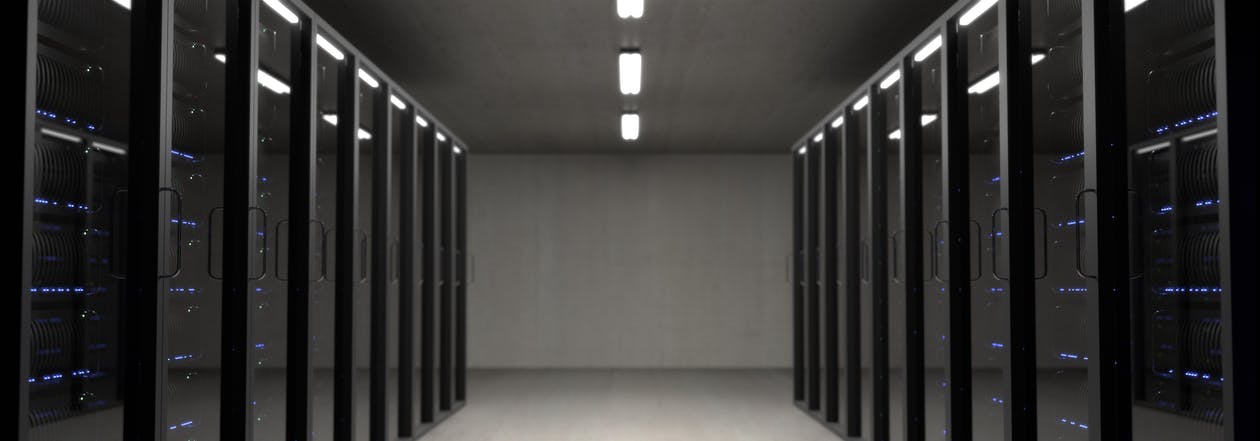
If the business is active in essential services, or part of the supply chain that supports online ordering (ie. warehousing, distribution, delivery, etc.) then it will have jobs. Manufacturing will see impact simply due to reduced product demand and volumes. If you have to pay to run a factory that produces widgets and you need to produce less widgets the same costs is incurred for power, labor, QA, packaging, etc. even though your volumes are lower. That means many manufacturers may have challenges keeping their operations going in areas that are of high cost to operate.
I see a shift to outsource, but I also see a knee-jerk reaction away from regions that may be negatively perceived as associated with this virus. And that is China. If there was one area that could see growth is the adjustment of supply chains away from China and to closer and more controllable regions, and my pick here (as it has been for some time) is Mexico. I believe that if you speak Spanish, you will have work. Period. There will be enormous opportunity helping companies move their supply chains to Mexico, because they can’t afford the risk of doing business with China. Not only is it a risk with occupational health & safety, but the fact they are doing business with organizations that are often directly linked to the Chinese Communist Party is going to be a problem, if the US government doesn’t elect to stop that entirely.
The bottomline here is that things will get WAY worse before they get better, and that represents from June through October. This means high rates of unemployment, tenants being evicted, crime on the rise, drug use on the rise, etc. This won’t be a US phenomenon either. Every country is likely to be impacted, but some less than others. And there will be a shift away from one region to another as well.
Money never really disappears. It just changes hands. The problem is that what we think of as “money” is often debt. Debt doesn’t change hands easily. Normally it gets evaporated and the assets that were purchased by the debt are clawed back and sold at firesale prices.
That’s where the sweet spot in all of this lies. But you have to be careful that “one man’s trash is another man’s treasure” may not apply. In fact, one man’s trash could be another man’s headache. Consider purchasing rental real estate that is empty of tenants. You might buy it for a song, but if you can’t pay cash for it and not be worried about deferring income, then you are just inheriting someone else’s headache here.
One thing is pretty much for certain. There will be massive casualties from this. And not just the medical losses we see on the nightly news. It is going to be the ongoing collapse of society. Economics was not designed for this, and certainly the idea of printing money from nothing to artificially bolster economies doesn’t factor in that it just degrades the value of each existing dollar that is already in circulation. If you are holding onto cash right now, build into your contingency plans that the cash in 12-24 months may have half the buying power.
Those of us who use the teachings of financial sustainability should be fine here. I’m not saying that as a general statement, but if you were never relying on a job, then not having one doesn’t affect you. What may affect you is if your assets are relying on other people having jobs. You need to know you have capital reserves, but you want to be careful that holding pure cash liquidity might not be such a great idea. Having access to capital to bolster losses on rents is wise and using stores like Gold or precious metals for the long term holds may give you some security for the future.
But for now, things will get WAY worse before they get better. And those that have the courage to look at this carefully and the flexibility to pivot if needed, will have the highest chance of coming out of the other side of this in some stable form.
How long should we plan for this?
I’m working on five (5) year time frame planning right now. I know the first 12 months will be the hardest in terms of adjustment and right now we are in the calm before the storm phase. The one time stimulus checks will soon be forgotten as next month’s rent is due, and the following month, etc. Government intervention to stop evictions will cease as they get pressure from the very donors to their political campaigns, and in the end tenants will be left out in the cold.

If you are a tenant and on the receiving end of this, find a way to earn income online. And don’t sit around thinking you are above making money delivering groceries, or filling out surveys, or taking phone calls for companies. You might have been some highly qualified architect, but if your firm is shut down and no one is building new houses, it is time to deliver pizzas. If not, your ego will stop you from paying your rent and what good is to have a big ego, but be living in a cardboard box down by the river. We have all seen those stories of the guy down there who has a great story to tell, as they fall over blind drunk trying to alleviate the pain artificially again, just like their government tried to do with some stimulus check.
Now is not the time to be investing in luxury commodities or businesses that are trying to cut & run from those industries. Don’t think that just because the local travel agency business can be bought for pennies that it isn’t going to take you down with it as well. If you don’t have an essential role to play here, you won’t get to receive money. That’s how it works in a depression. Find a place to have an essential role.
There is always someone out there willing to work harder than you to get the reward. Remember that as you don’t feel like working today or have some other lame excuse. Now is the time for action. Do it before everyone else and get some early advantage. The reality is that your job is probably not coming back. Your stimulus check won’t be repeated and the government loan program will be stopped before you get to participate. So find a way yourself to survive. There are plenty of ways out there, and I talk about them all the time.
The old model of having a job, investing in the stock market, retirement, etc. is gone. It is time now to find your new calling and become essential.







